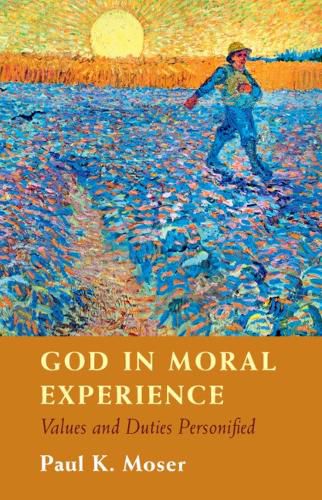Readings Newsletter
Become a Readings Member to make your shopping experience even easier.
Sign in or sign up for free!
You’re not far away from qualifying for FREE standard shipping within Australia
You’ve qualified for FREE standard shipping within Australia
The cart is loading…






The Apostle Paul defined the moral values of love, joy, peace, patience, and kindness as 'the fruit of God's Spirit.' Paul Moser here argues that such values are character traits of an intentional God. When directly experienced, they can serve as evidence for the reality and goodness of such a God. Moser shows how moral conscience plays a key role in presenting intentional divine action in human moral experience. He explores this insight in chapters focusing on various facets of moral experience - regarding human persons, God, and theological inquiry, among other topics. His volume enables a responsible assessment of divine reality and goodness, without reliance on controversial arguments of natural theology. Clarifying how attention to moral experience can contribute to a limited theodicy for God and evil, Moser's study also acknowledges that the reality of severe evil does not settle the issue of God's existence and goodness.
$9.00 standard shipping within Australia
FREE standard shipping within Australia for orders over $100.00
Express & International shipping calculated at checkout
The Apostle Paul defined the moral values of love, joy, peace, patience, and kindness as 'the fruit of God's Spirit.' Paul Moser here argues that such values are character traits of an intentional God. When directly experienced, they can serve as evidence for the reality and goodness of such a God. Moser shows how moral conscience plays a key role in presenting intentional divine action in human moral experience. He explores this insight in chapters focusing on various facets of moral experience - regarding human persons, God, and theological inquiry, among other topics. His volume enables a responsible assessment of divine reality and goodness, without reliance on controversial arguments of natural theology. Clarifying how attention to moral experience can contribute to a limited theodicy for God and evil, Moser's study also acknowledges that the reality of severe evil does not settle the issue of God's existence and goodness.